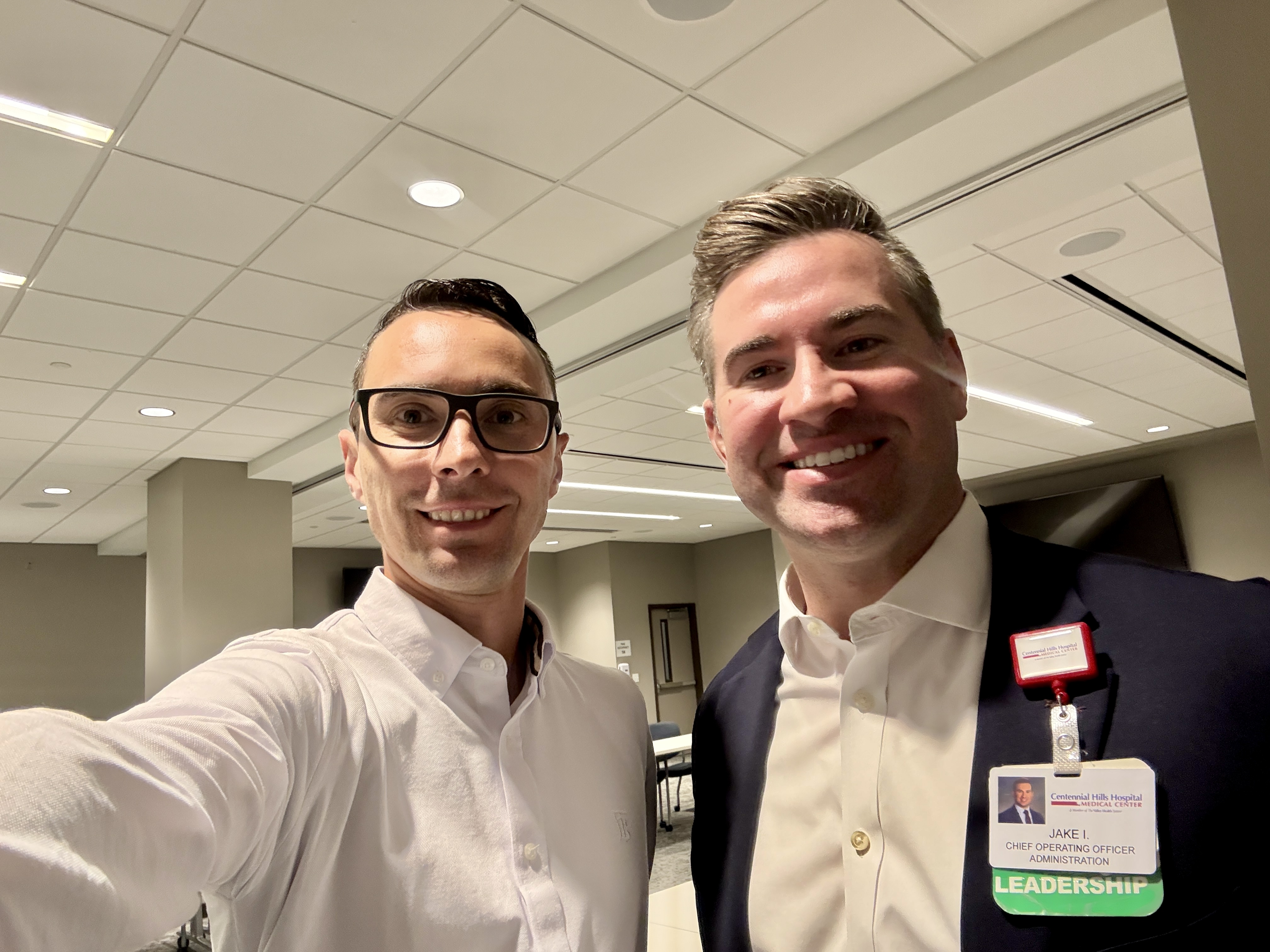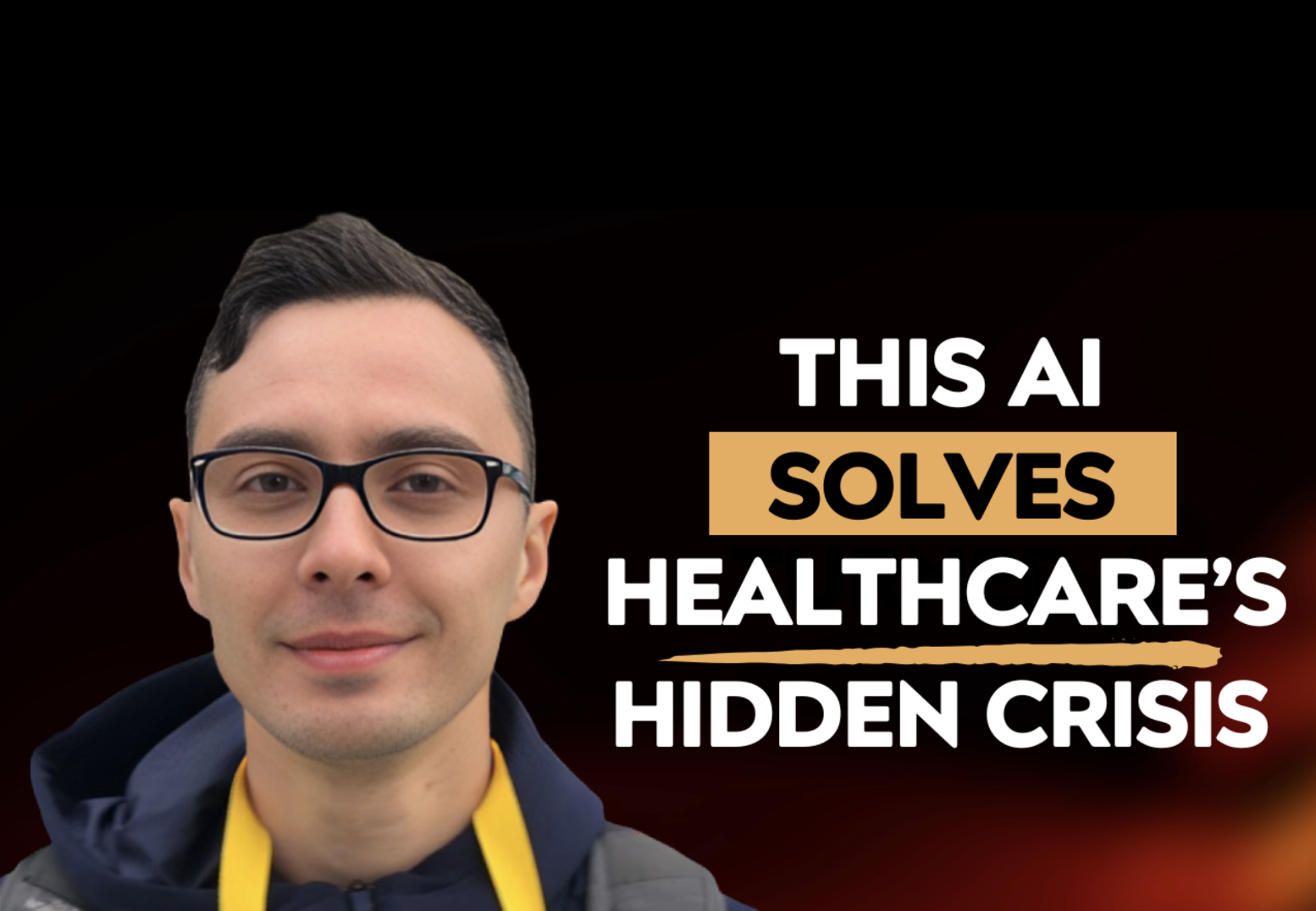Photo: Dmitry Karpov and Jake Isenhour, Chief Operating Officer of Centennial Hills Hospital
Leadership, Quality, and Patient Experience: Lessons from Centennial Hills
On August 12, I had the privilege of attending Meet the Chiefs, an event organized by the American College of Healthcare Executives (ACHE) and hosted by the executive leadership team of Centennial Hills Hospital in Las Vegas. The panel featured Craig McCoy (CEO), Nathan Crabdree (CFO), and Jake Isenhour (COO), who not only shared their perspectives on healthcare leadership but also guided us through a facility tour that highlighted the hospital’s achievements and aspirations.
A Dual Meaning of Quality in Healthcare
One of the most thought-provoking discussions of the day centered on the dual meaning of “quality” in healthcare. On one hand, hospitals are measured by structured policies, scorecards, and compliance metrics such as HEDIS measures, The Joint Commission standards, and CMS requirements. On the other hand, patients define quality in more human and experiential terms—how attentive the staff were, whether their questions were answered, or even the atmosphere and cleanliness of the environment.
As we discussed, these two forms of quality often diverge. A hospital can achieve 100% on quality scorecards, but patient satisfaction may not fully reflect it. It’s similar to a restaurant: the cleanliness of the kitchen is essential but invisible to the customer, while the warmth of service and presentation of the meal often shape their perception. Both matter—and both must be managed with equal dedication.
Centennial Hills’ Commitment to Excellence
Centennial Hills Hospital has demonstrated unwavering leadership commitment to quality and patient experience, backed by numerous industry-recognized achievements:
- U.S. News & World Report High‑Performing Designations: The hospital has been named a High‑Performing Hospital for Maternity Care (2024). It also ranks high performing in procedures and conditions such as COPD, heart failure, hip replacement, and stroke
- National President’s Circle Award for Clinical Excellence in Patient Satisfaction: Recognized for outstanding patient-centered performance
- STEMI Quality Achievement – Gold Plus Award (2022): Honored for rapid and guideline‑compliant heart attack care.
- National Award for Clinical Excellence in Wound Care: Acknowledged for superior wound care services.
- DAISY Awards: Celebrates extraordinary nurses who embody exceptional patient care and compassionate service.
- Joint Commission and Other Accreditations: Designated as an Advanced Primary Stroke Center, Accredited Chest Pain Center, and recipient of American Heart Association/American Stroke Association’s "Get with the Guidelines" quality recognition
These awards are neither superficial nor isolated—they reflect deep-rooted operational rigor, leadership focus, and a culture that marries clinical excellence with patient-centered care. Touring the facility, it was clear that Centennial Hills’ leadership has invested in processes and people in order to deliver measurable outcomes.
AI and the Future of Quality
In today’s healthcare environment, artificial intelligence provides a unique opportunity to close the gap between compliance-driven quality and patient-perceived quality. Hospitals can leverage AI tools to achieve both:
- Adherence to Quality Measures (e.g., HEDIS, SEP-1, Core Measures): Real-time EHR analytics can flag missing documentation, ensure accurate coding, and support compliance before records are finalized—streamlining audits and surveys.
- Patient Experience Insights: Natural Language Processing applied to patient surveys, social media comments, and in-app feedback can surface actionable themes like wait time frustrations or communication clarity, enabling targeted improvements.
- Operational Enhancements: AI-driven predictive staffing models and scheduling tools can reduce bottlenecks, decrease patient wait times, and enhance overall care experience.
- Safety and Consistency: Automated alerts for missed follow-ups, conflicting orders, or clinical deviations bolster safety and trust—translating into better patient satisfaction and lower readmissions.
At WorkDone Health, we believe hospitals don’t have to choose between meeting compliance standards and improving patient experiences—they can—and should—achieve both. AI is the connective tissue that integrates data, processes, and the patient voice into one cohesive system.
Final Thoughts
The Meet the Chiefs event was a powerful reminder of how leadership commitment, when backed by the right culture and infrastructure, can translate into both quality recognition and meaningful patient experiences. The awards Centennial Hills has earned—from U.S. News high-performance rankings to national wound care and STEMI honors—are proof that excellence isn’t just about meeting scorecards, but also about the patient who experiences care.
In the AI era, the future of healthcare quality lies in harmonizing adherence with empathy—measured not just in charts, but in the genuine experiences of patients.
— Dmitry Karpov, CEO, WorkDone Health



